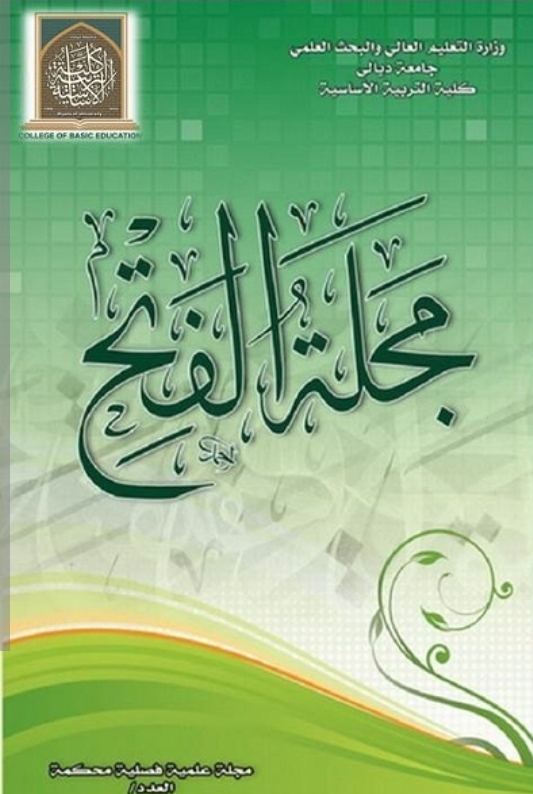THE IMPACT OF PHONETIC TRAINING COURSE ON PRONUNCIATION PERFORMANCE OF KURDISH EFL UNIVERSITY STUDENTS
Keywords:
Phonetic training, Kurdish EFL students, pronunciation performanceAbstract
The aim of this experimental study is to examine the impact of a phonetic training course on Kurdish EFL student’s pronunciation performance. To accomplish the effectiveness of phonetic training, 100 Kurdish EFL students from the first grade of English department /Salahaddin University (SU) participated in this study. The participants were assigned arbitrarily into two groups, experimental and control. A Key English Test (KET) was administered to them to determine their pronunciation proficiency level. After the pre-test, the experimental group (n=50) received successive phonetic training sessions for sixteen weeks, While the control group (n=50) took their regular class. These phonetic sessions were given three hours a week. Both groups were given a post-test at the end of the course. For analyzing the obtained data, the Statistical Package for Social Science (SPSS) was used. The quantitative data were analyzed via calculating the weighted mean, its standard deviation, and percentile of weight.
The results indicated that using phonetic training improved Kurdish EFL students’ English pronunciation, and the experimental group participants were found to have a better performance than the control group
References
References
Asadpour, H. & Mohammadi, M. (2014) A Comparative Study of Phonological System of Kurdish Varieties. Journal of Language and Cultural Education, 2 (3), 104-119.
Brown, A. (1992). Approaches to Pronunciation Teaching. Hertfordshire: Phoenix ELT.
Celce-Murcia, M., Brinton, D. M., Goodwin, J. M. (2010). Teaching pronunciation: A reference for teachers of English to speakers of other languages, Cambridge: Cambridge University Press.
Cruickshank, D. , Jenkins, D. B. & Metcalf, K. K. (2012). The Act of teaching. 6th Ed. USA, McGraw-Hill Companies.
Derwing, M. T. & Munro, J. (2005) Second Language Accent and Pronunciation Teaching: A Research-Based Approach. TESOL Quarterly, 39 (3), 379–397.
De Juana Malaina, S (2014). ESL/ EFL Pronunciation Teaching: A Literature Review and Investigation into Best Practices. M.A thesis, University of De Jaén, Spain.
Farhady, H. & Delshad, S. (2007). An Introduction to Methodology for TEFL/TESL . Tehran: the organization for Researching and composing University Textbooks in the Humanities, SAMT.
Fattah, M. M. (1997). A Generative Grammar of Kurdish. PhD thesis, University of Amsterdam.
Fattah, M. M. (2010). Lêkollinewe Zimanewaniekan (Linguistic Researches). Hawler: Rojhellat Press.
Fraser, H. (2000). Coordinating improvements in pronunciation teaching for adult learners English as a second language, Department of Education, Training and Youth Affairs, Canberra.
Gilbert, J.B (2008). Teaching Pronunciation Using the Prosody Pyramid. Cambridge, Cambridge University Press.
Gilakjani, A.p. (2012). A Study of Factors Affecting EFL Learners' English Pronunciation Learning and the Strategies for Instruction. International Journal of Humanities and Social Science 2 (3), 119-128.
Hamad,P.I & Muhammad,H.A(2018) Teaching Stress and Intonation from Students’ Perspective, Al-Fath Journal,No.84,1-33, DOI:10.23813/FA/74/15
Hamad, P.I (2014). Teaching Aspects of Connected Speech for Second Year Students at University level. Zanco Journal of Humanity Sciences, 18 (1), 205-212.
Hamad, P.I (2015). Kurdish EFL Learners’ Difficulties in Producing Consonant Clusters. Kurdish Academy, 23: 243-252.
Harmer, J. (2001). The Practice of English Language Teaching. London: Longman
Hewings, M. (2004). Pronunciation practice activities. Cambridge, UK: Cambridge University Press.
Hismanoğlu, M. & Hismanoğlu, S. (2010). Language teachers‟ preferences of pronunciation teaching techniques: traditional or modern? Procedia- Social and Behavioral Sciences, 2 (2). 983-989.
Jubrail, A. J. (1993). On teaching the sound system of English in primary stage. Roshinbiri New (in Kurdish), (130): 79-93.
Karimi, D. GH. (1996). The phonemic system of the Kurdish dialect of Sanandaj. Linguistics, (10)1: 55-62.
Littlewood, W. (2002). Foreign and Second Language Learning. Cambridge, Cambridge University Press.
McCarus, E.N. (1992). Kurdish. In W. Bright (Ed.), International encyclopedia of linguistics. Oxford: Oxford University Press.
O’conor, J. D. (1980). Better English Pronunciation. Cambridge, Cambridge university press.
Othman, D.Y. (2011). Orthothographic Interference in Teaching English Pronunciation to Kurdish Learners of English, Zanco Journal of Humanity Sciences, 49 (1), 5-24
Othman, D.Y. (2013). Assisting Kurdish Learners of English to overcome some Pronunciation Problems. Zanco Jouurnal of Humanity Sciences, 57 (1): 29-38
Pennington, M. C. & Richards, J. C. (1986). Pronunciation revisited. TESOL Quarterly, 20 (2), 207-225.
Rahimpour, M. (2011) A Phonological Contrastive Analysis of Kurdish and English. International Journal of English Linguistics, 1(2), 72-82.
Rezvani, P. & Asadpour, H. (2005) The Comparative Study of English and Kurdish Phonology. Retrieved from http://www.academia.edu/10667133
Richards, J. C. & Rodgers, T. S. (1992). Approaches and Methods in Language. Cambridge: Cambridge University Press.
Roach, P. (2009), English phonetics and phonology: A practical course. (4th, ed.), Cambridge: Cambridge University Press.
Saito, k. (2007). The influence of explicit phonetic instruction on pronunciation teaching in EFL settings: The case of English vowels and Japanese learners of English. Linguistics Journal, 3 (3), 16-40.
Downloads
Published
How to Cite
Issue
Section
License
Copyright (c) 2023 https://creativecommons.org/licenses/by/4.0/

This work is licensed under a Creative Commons Attribution 4.0 International License.
حقوق النشر والترخيص
تطبق مجلة الفتح للبحوث التربوية والنفسية ترخيص CC BY (ترخيص Creative Commons Attribution 4.0 International). يسمح هذا الترخيص للمؤلفين بالاحتفاظ بملكية حقوق الطبع والنشر لأوراقهم. لكن هذا الترخيص يسمح لأي مستخدم بتنزيل المقالة وطباعتها واستخراجها وإعادة استخدامها وأرشفتها وتوزيعها ، طالما تم منح الائتمان المناسب للمؤلفين ومصدر العمل. يضمن الترخيص أن المقالة ستكون متاحة على نطاق واسع بقدر الإمكان وأن المقالة يمكن تضمينها في أي أرشيف علمي.
لمزيد من المعلومات، يرجى متابعة الرابط: https://creativecommons.org/licenses/by/4.0/.



